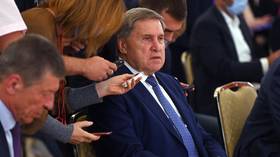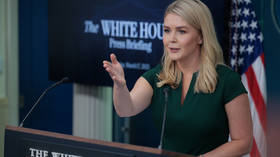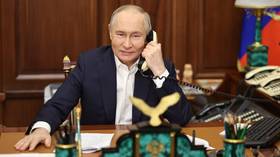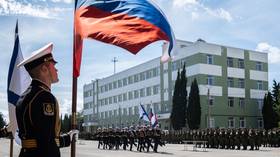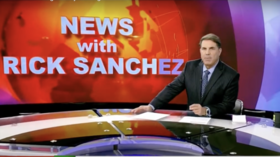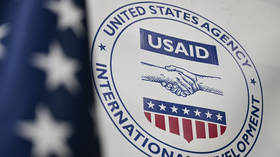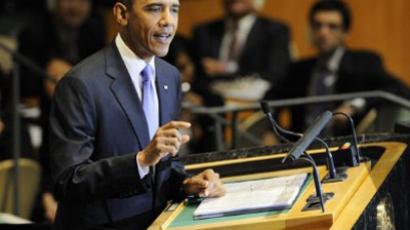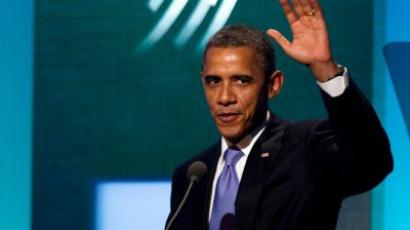Abbas submits Palestine statehood bid, gets ovation at UN
Palestinian National Authority President Mahmoud Abbas has submitted an official bid to the UN Secretary General Ban Ki-moon for Palestinian admission to the United Nations as a full member.
Ban Ki-moon accepted the application, aimed at Palestine being recognized as an independent state, and presented it to the UN Security Council, which will then consider it and pass it on to the General Assembly.When the Palestinian leader walked into the UN General Assembly on Friday, he received a round of applause that lasted for more than a minute – something that is not often seen. Many delegates stood up and gave him a standing ovation, and they did this several times throughout his speech, which lasted for more than 40 minutes.In his address to the United Nations session, Mahmoud Abbas said that Jewish settlement activity threatens the two-state solution of the Israel-Palestine conflict.He also announced that Palestine is ready to return to the negotiating table, but added that the Palestinians will continue their peaceful popular resistance to what he called "Israeli occupation".Prime Minister Benjamin Netanyahu, who addressed the assembly shortly after Mahmoud Abbas, said that Israel is extending the hand of peace to all its neighbors, and especially to Palestine. ”Most especially, I extend my hand to the Palestinian people, with whom we seek a just and lasting peace,” he said, as quoted by AP news agency.Netanyahu added that peace between his country and Palestine cannot be achieved through UN resolutions alone, without negotiations. He said that the Palestinians want their state without concluding a peace deal with Israel, stressing that such a peace can only be achieved through direct talks.The Middle East Quartet has reportedly convened for their meeting, with their statement regarding the peace talks expected shortly.Thousands of jubilant Palestinians have gathered before large outdoor screens set up on town squares across the West Bank to see Mahmoud Abbas submit his independence bid to the United Nations. Crowds have also flocked to the downtown area of Ramallah in support of the president, who had earlier called on Palestinians to organize peaceful marches to back his appeal.Friday has also seen violence escalating in the West Bank between Israeli forces and the Palestinian population. The Israeli army has on several occasions used tear-gas to disperse Palestinian demonstrators rallying in support of the independence bid.The application for an independent Palestine comes despite US promises to veto Palestine's bid for statehood in the United Nations. The US is insisting that the Palestinian state should only be formed as a result of negotiations between the Palestinian leadership and Israel.Earlier, the Israeli foreign minister, Avigdor Lieberman, told journalists that the Palestinian application could stall the negotiation process between the two sides.
According to former Palestinian negotiator Ghaith Al-Omari from the American Task Force on Palestine, the solution to the Israel-Palestine conflict would be a combination of diplomacy and the changes already going on in Palestine itself. ”If you look at opinion polls in Palestine and Israel you will see that the majority of the public supports the two-state solution along similar lines,” he said. “The problem is not with the public. It is with the leadership.” ”Negotiation is definitely one [solution] with a more invigorating international role, but it is also what the Palestinians have been doing on the ground in terms of building their institutions, building the security service to make sure that once the Palestinian state is created, it will be a strong state, it will be a democratic state,” Ghaith Al-Omari added. “I think it is a combination of both – invigorated diplomacy and developments on the ground.”



